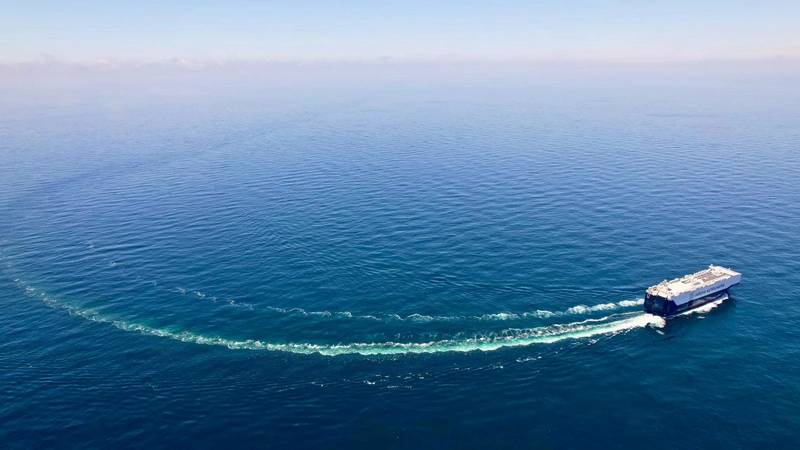Engine Part-load Optimization Saves Fuel for Höegh Autoliners Vessel
Hanwha and Accelleron have performed an engine part load optimization (EPLO) for Höegh Autoliners supporting long-term energy efficiency for its 7,850 CEU (Car Equivalent Units) car carrier Höegh Detroit. The success of the project to improve the vessel’s Carbon Intensity Indicator (CII) rating has led to an order for EPLOs on a further seven vessels owned or operated by Höegh.
At a recent sea trial, EPLO demonstrated fuel saving of 10g/kWh, equivalent to 5% of total fuel consumption. The improvement not only enables the vessel to operate in a high CII rating but also provides substantial operating cost reduction in terms of fuel costs and EU ETS expenses and reduced CO2 emissions.

Working with engine builder Hanwha Engine Co, Accelleron optimized both engine tuning and turbocharger configuration, including the installation of components more suitable to the vessel’s lower speed profile. Turbocharger nozzle rings, turbine blades and compressor wheels were all adapted, alongside various engine parameters, optimizing efficiency for a de-rated engine output of 79% of the original maximum continuous rating, tailor edged to the new propulsion upgrade. During the project, Höegh Detroit was also equipped with a new propeller that enables the vessel to reach same maximum speed as before the modifications, the only difference is the lower fuel consumption.
Sebjørn Dahl, Chief Operations Officer at Höegh Autoliners, said, “Operating with lower engine power is one of several energy efficiency measures being deployed by Höegh Autoliners as part of our commitment to being a leader in sustainable deep-sea shipping. The fuel efficiency impact of EPLO optimization on Höegh Detroit exceeded our expectations, safeguarding the vessel’s long-term energy efficiency and market value. We are confident of similar success in future EPLO projects.”
“Sustainability and emission reduction is at the core of Höegh Autoliners’ strategy. This joint project with Accelleron and Hanwha shows very good results and is an example of decarbonization in practice,” said Sebjørn Dahl, COO, Höegh Autoliners.
More than 60 percent of the world’s ships of 400 gross tons (GT) or more are required to comply with IMO’s CII regulations. The energy intensity criteria are becoming stricter every year driving the decarbonization of the maritime industry. As a result, many shipping companies are investigating and implementing a series of measures to improve the efficiency of their existing fleet to ensure they remain attractive in a highly competitive market. Operating at reduced ship speeds is a common measure that directly reduces the carbon footprint of shipping; a 5% reduction in speed reduces CO2 emissions from a voyage by 10% and the required propulsion power by 15%. However, most marine engines are designed to provide optimum performance at the speed for which the ship is designed, and reduced speed often operates the engines outside of the optimum power range. EPLO adapts the turbocharger and engine settings to the new load requirements further improving efficiency and combustion quality.
Accelleron has received orders for more than 20 EPLOs to date, many for multiple sister vessels, as shipowners seek cost-effective solutions to extend compliant service life on existing vessels. EPLOs can be undertaken by Accelleron as the turnkey solution provider or in conjunction with the original engine builder.
Accelleron, Product Manager Upgrades, Matthias Reichmann, said, “The phenomenal efficiency improvement delivered for Höegh Autoliners shows that EPLO – when performed optimally and with an associated optimization of turbochargers and engine settings– is among the best and most cost-effective solutions for reducing a vessel’s carbon intensity. Accelleron’s EPLO upgrade solution delivers peace of mind for shipowners dealing with complex decarbonization demands, a simple and effective measure contributing to compliance with greenhouse gas regulation while benefitting from substantially reduced fuel costs.”
